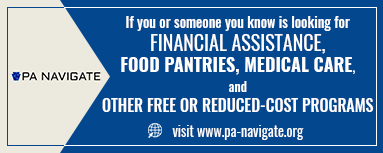After a long, cold winter in Bucks County, we are all ready for the warmth and sunshine of summer. As much as most of us love the summer and the opportunity to relax outside and go on vacation, we need to remain cautious of possible hazards that can compromise our health.
Dehydration
It’s important to remain hydrated in the summer, whether you are outside or inside, whether you are in the sun or in the shade. This is especially critical if you are exercising or working in the heat. Mild dehydration can cause headaches, fatigue, and changes in heart rate or blood pressure. Listen to your body and make sure you are drinking water and taking additional electrolytes.
Children, disabled people, and the elderly need to be especially monitored to make sure they are taking in enough fluids. Children often do not think about it; elderly people tend to eat and drink less, and sometimes too little; and some disabled people may need help monitoring their health signs to know when to take in more healthy fluids.
Heatstroke And Heat Exhaustion
Dehydration that is not addressed soon enough can lead to heat exhaustion or heatstroke. Heat exhaustion occurs when the body has lost a significant amount of liquid and salts, usually from sweating, and they have not been replaced. Symptoms include:
- general weakness
- increased sweating
- weak but rapid heart rate
- dizziness, lightheadedness, or fainting
- nausea or vomiting
- pale, cold, or clammy skin
If you see someone with these symptoms, immediately move the person to a shady or cool area, hydrate with water and electrolytes or sea salt in the water, and apply cold compresses or help the person into a cool shower or tub.
Heatstroke is caused by an inability to regulate the internal body temperature. It is sometimes called sunstroke, but you don’t need to be in the sun to experience it and it can be life-threatening. It can be preceded by heat exhaustion or it can occur independently. Symptoms include:
- elevated body temperature above 104 degrees Fahrenheit
- rapid and strong heart rate
- hot, dry, red, or moist skin
- loss of or change in consciousness
If you see someone with these symptoms, just as with heat exhaustion, move the person to a cool area and immediately apply cool compresses or cool bath water. Try to be in circulating air, for instance, in front of a fan, to speed the cooling. If the person does not immediately respond to treatment or if you are dealing with a child or a person with any other health problems, call 911 for emergency help.
Food-Borne Illnesses
Food-borne illnesses are more common in the summer than other times of the year because pathogens can quickly grow in food that has been left out or has gotten warm. Picnics are notorious for being a source of stomach poisoning. Moist foods like potato salad, left out in the heat, especially if uncovered, can be a breeding ground for bad bacteria.
To limit the risk of pathogens, follow common-sense precautions:
- Keep food cold. If you’re at home, keep perishable food in the fridge or freezer. If you’re out and about, use a really good cooler and cold packs to keep the food as cold as possible. A thermometer in your cooler can help you monitor the temperature. Make sure the cooler is air-tight.
- When opening and closing containers or coolers, move quickly to avoid heating the food or allowing bugs in or anything that might be blowing in the wind.
- If you’re having food delivered, be sure that you are home to receive it when it arrives. Do not let food sit outside.
- The old saying “when in doubt, throw it out” applies. Don’t risk it.
- Keep raw meat away from other foods. When grilling, don’t put your cooked meat back on the platter that it was on when raw.
Insect Bites And Sunburn
Insect bites are always annoying, but sometimes they can be deadly. Mosquitoes, biting flies, ticks, and bees are just some of the creatures of the insect world that can ruin a day outside. To reduce the risk of insect bites, try these tricks:
Dress appropriately. If you’re hiking, wear long pants with high socks and tuck the pants in. Wear a loose, long-sleeved shirt that gathers at the wrist and is made of a natural material that can breathe and wick off sweat.
Apply bug repellent and use bug repellents in the area where you will be sitting, but try not to use chemicals such as DEET. Picaridin is a safer alternative. There are many natural products available that are also effective, using essential oils and other natural ingredients. Citronella, lemon eucalyptus, peppermint, and lemongrass candles or sprays can also create a nearly bug-free environment for a nice evening outside.
Getting sun on your skin is critically important for making vitamin D, one of the most important vitamins for your health, but you should take precautions. Sunburn can happen even on cloudy days, and by the time you look red, your sunburn is likely worse than you realize. Wearing appropriate clothing and applying the right level of sunscreen can help decrease your risks. Remember to come in from the sun occasionally to cool off, making sure you are not getting too much sun. Especially remember this for children, who are happy to stay outside for hours.
And remember that there is also the danger of poison ivy, which can cause nasty skin irritation. Children often transfer it to their faces, which can be dangerous to the eyes.
Be prepared with remedies for sunburn, poison ivy, and bug bites, especially if anyone in your group or your family has a serious reaction to stings. Put together an insect and sunburn first aid kit that includes:
- Aloe vera gel
- Calamine lotion
- Instant cold packs
- Antibiotic ointment
- Eyewash solution
- Hydrocortisone cream or other itch relief cream
- Pain relievers, such as acetaminophen and ibuprofen
- Benadryl or other antihistamine
- Bandages to cover bites or poison ivy to prevent excess scratching
- Extra medication for anyone who has a serious allergy
Don’t let the dangers of summer keep you from enjoying the warm weather and sunshine. Take reasonable precautions, be prepared with some basic first aid, and you will have a great summer.





